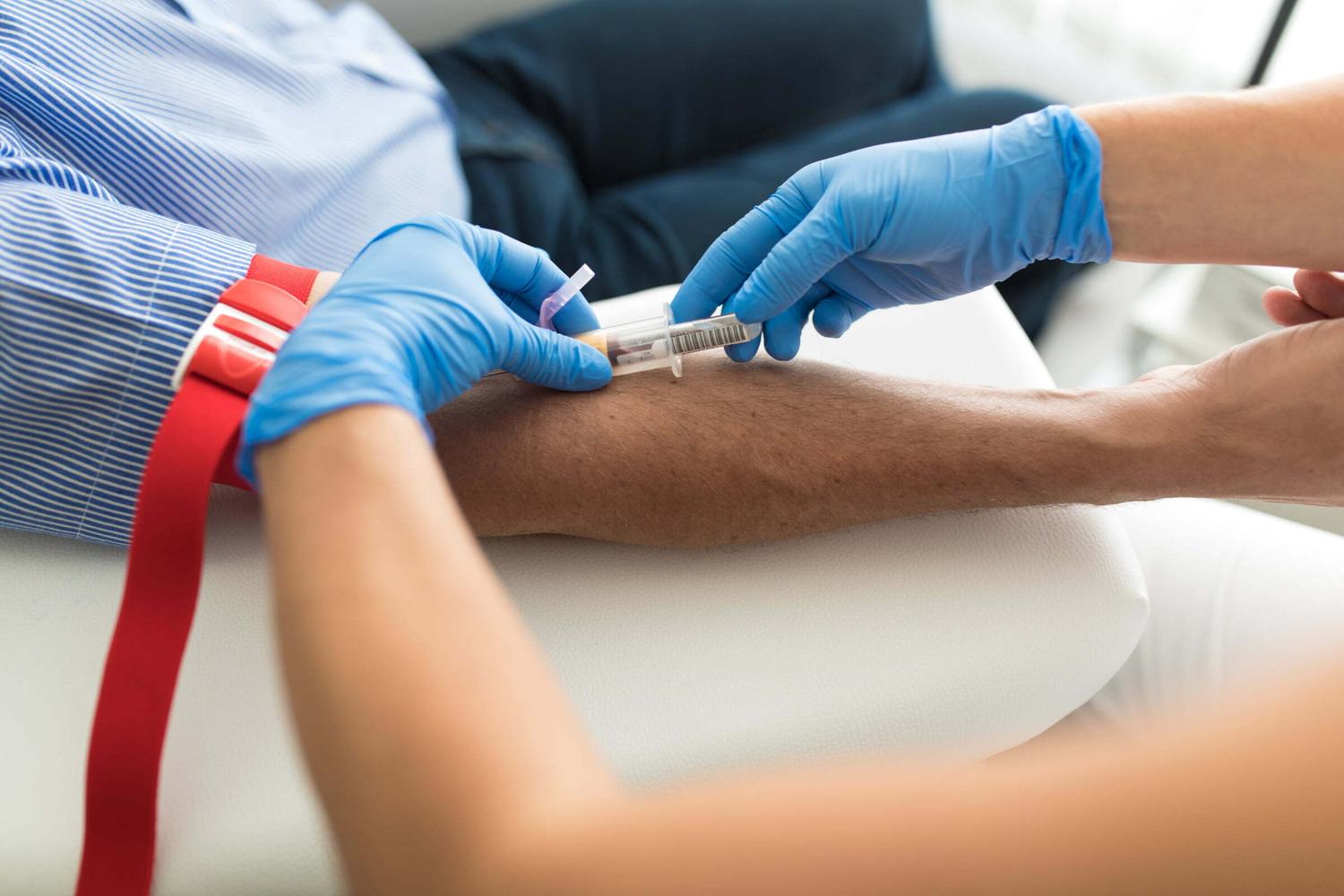How to Avoid UTIs After Sex
Key Takeaways
- Sexual activity can trigger a urinary tract infection (UTI) by moving bacteria toward the urethra, especially when other risk factors like certain birth control methods are present
- Preventive steps like urinating shortly after sex, staying well-hydrated, maintaining genital hygiene, and using condoms with water-based lubricant may help reduce your risk of getting a UTI
- If you notice a frequent urge to urinate, burning during urination or cloudy urine, you should seek medical advice since a full antibiotic course is usually required to treat a UTI effectively
Urinary tract infections (UTIs) affect nearly 50% of all women. Anywhere from 12-20% of men get one at some point. These infections are prevalent and can be very painful.
Unfortunately, sexual intercourse can increase your risk of getting a UTI. Luckily, there are a few steps you can take to prevent UTIs from occurring. This article will explore the link between sex and UTIs. It will also detail ways to prevent infections and treat them quickly.
Can I get a UTI from sex?
Yes, sexual activity is a common cause of UTIs, especially in young men and women. There are several reasons why sexual activity can result in a urinary tract infection, including:
1.Sexual intercourse
The thrusting motion of sexual intercourse can push bacteria that live around the rectum toward the urethra. This can increase the risk of bacteria entering the body and causing an infection. Intercourse can also lead to chafing of the genital area.
This irritation can increase the risk of infection. It’s important to note that penetrative sex is not the only cause of UTIs. Oral and manual sex can also introduce harmful bacteria to the opening of the urethra, leading to infection.
2. Birth control:
Certain contraceptives, like diaphragms and lubricants with spermicide, increase the risk of UTIs. Diaphragms push against the urethra, causing urine to become trapped in the bladder. When this occurs, bacteria can populate, leading to an infection. Spermicides (often found in lubricants and on condoms) can change the bacterial balance of the genital area, making it open to infection.
3. Anal sex:
Anal sex can introduce bacteria from the anus to the genital area. This can lead to urinary tract infections. Men who have anal sex are at greater risk for developing UTIs (even though these infections are rare in men) for this reason.
4. Sexually transmitted infections:
Urinary tract infections are NOT sexually transmitted infections. While sexual activity can cause bacteria to enter the body and infect the urinary tract, sex itself won’t lead to transmission.
However, STIs can increase your risk of developing UTIs. Diseases such as chlamydia and gonorrhea can affect your urinary system while weakening your immune system. These side effects can increase your risk for UTIs and other infections.
Other UTI risk factors
Aside from sex, common risk factors for UTIs include:
1. Gender:
Women are more likely to develop a UTI than men due to their anatomy. Women have a shorter urethra, making it easier for bacteria to enter the body and the bladder. The opening of the urethra is also closer to the anus in women. This increases the risk that bacteria move from the anus into the urethra (especially during sex).
2. Age:
Older adults are at greater risk of developing UTIs. A decline in estrogen in women after menopause can cause changes in the urinary tract, which can increase the risk of developing UTIs. In men, an enlarged prostate can lead to bacterial build-up and infection. Kidney stones also cause blockage problems in urinary flow and increase the risk of UTIs.
3. A weakened immune system:
Individuals with a weakened immune system are at greater risk for developing recurrent UTIs. The body cannot defend itself against germs, making it vulnerable to infection.
What are common UTI symptoms?
The signs and symptoms of a UTI vary depending on how bad the infection is and where it occurs in the body. Different types of infections may cause various symptoms, and symptoms may also vary for men and women.
The most common types of UTIs are:
- Urethral infections (urethritis)
- Ureter infections (ureteritis)
- Bladder infections (cystitis)
- Kidney infections (pyelonephritis)
While symptoms vary, there are a few common signs that you may have a UTI.
Common symptoms of a UTI in both men and women include:
- A strong and persistent urge to urinate
- A burning sensation while urinating
- Frequent urination with little volume
- Cloudy or hazy urine
- If your urine is scarlet, bright pink, or cola-colored, this is an indication that there is blood in it
- Strong smelling urine
- Pressure or cramping in the groin, lower abdomen, or lower belly (common with a bladder infection)
- Lower back pain (common with kidney infection)
How to prevent UTIs after sex
Not all UTIs are preventable, nor does all sexual activity cause a urinary tract infection. However, there are a few steps you can take to help reduce your risk of getting one.
Use these UTI prevention tips to protect yourself against infection:
- Drink plenty of water
- Go to the bathroom as soon as you feel the urge to do so, and be sure to empty your bladder completely
- Use a condom with a water-based lubricant while having sex (this can also help protect against STIs)
- Practice safe sex (especially with a new partner)
- Men and women should be sure to urinate shortly after having sex
- Maintain good genital hygiene (for women, avoid douching and perfumed sprays, since these can throw off your vaginal pH and cause irritation)
- Women should wipe from front to back, away from the urethra and vaginal opening, and towards the anus
- Men should wash under the foreskin when taking a bath or shower (if uncircumcised)
These preventative measures are not guaranteed to prevent a UTI but will reduce your risk of infection. If you have recurrent urinary tract infections (2 or more UTIs in 6 months), seek medical advice from a healthcare provider. They can offer additional prevention methods or treatment options to protect you against infection.
How to treat a UTI
If you have been diagnosed with a UTI, you must treat the infection with a course of antibiotic medication. Prescription medication is required to completely neutralize the bacteria and prevent it from spreading to other organs. A prescription for UTI medication can be written by a primary care provider or a urologist.
Standard antibiotic treatment options for UTIs include:
- Nitrofurantoin (Macrobid, Macrodantin)
- Trimethoprim/Sulfamethoxazole (Bactrim, Septra)
- Ciprofloxacin (Cipro)
- Amoxicillin/Clavulanate (Augmentin)
- Ampicillin
- Cephalexin (Keflex)
These drugs reduce the symptoms caused by the infection and help you get rid of a UTI fast. Most people start feeling better within a day or two after starting treatment. Even if you begin feeling better, take the full course of medication. Recurrent urinary tract infections can occur when the first infection is not completely treated.
Be sure to drink lots of water while taking antibiotics for a UTI. Fluids help flush the infection from your system, which can make your symptoms go away even faster.
There are no over-the-counter or home remedies that can adequately treat a UTI. However, there are over-the-counter (OTC) medications that can relieve pain and discomfort from a UTI.
There is little to no evidence that non-prescription treatment options like cranberry products (like cranberry juice) or probiotic supplements can adequately treat a urinary tract infection.
When to see a doctor
Talk to a primary care provider or a urologist when you notice the early signs of a UTI.
These include:
- Painful urination
- Strong smelling urine
- Cloudy urine
- Back or side pain
Healthcare providers will test you for a UTI and prescribe treatment if necessary. Early treatment will help symptoms go away quickly while preventing the infection from getting worse.
How Sesame can help
If you think you might have a UTI, book an online UTI appointment on Sesame to discuss your concerns with a licensed healthcare provider.
Video visits on Sesame offer the opportunity to get same-day care without going to an office or clinic. If appropriate, providers can prescribe antibiotics to be picked up at your local pharmacy. Don’t wait to treat a UTI. Book a visit on Sesame and start feeling better right away.









